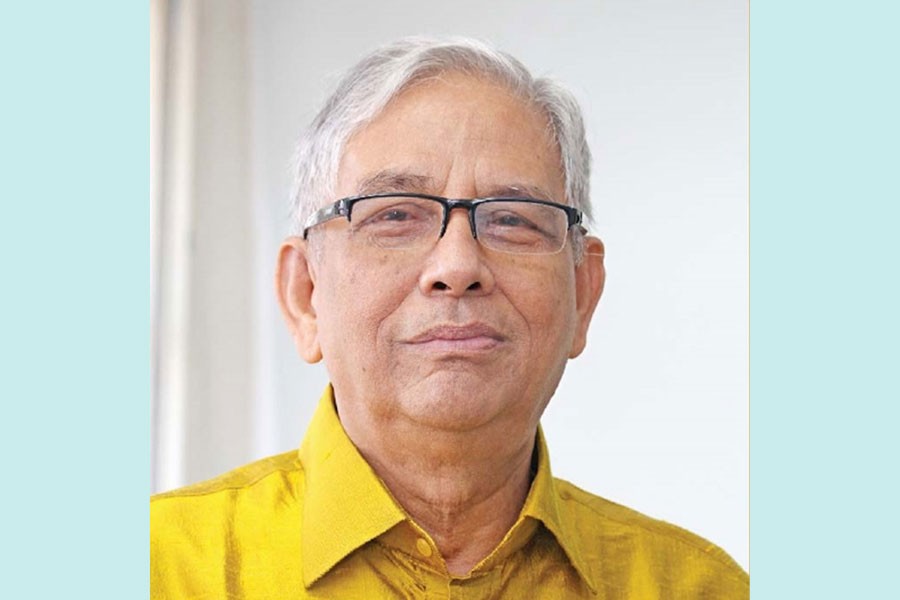
Published :
Updated :

Like in other parts of the world coronavirus is spreading its ugly destruction in Bangladesh as well. The number of people infected has crossed the ten thousand mark and the cruel death has snatched away 183 lives. The management of the pandemic could be better to prevent the significant affliction of the physicians-nurses-health workers and the members of the police force. The safety kits supplied were either of substandard quality as the allegations grow louder or not made available at all. Let there be more monitoring and guidelines to improve things all round including humane attitude to the corona suspect patients.
In the midst of calculations and estimations of devastating losses to the economy and its agents, the humans, the demand for opening the industrial establishments is getting louder as in all the other countries. Let there be prompt, firm and protocol abiding mandatory provisions for reopening the RMG, knitwear, leather-footwear and the micro-small-medium enterprise (MSME) establishments.
In an excellent silver lining, the bumper Boro crop has been harvested thanks to the hardworking kishan kishanis as well as the officials, civil society members, students, political workers and migrant workers. Now arises the hard part of minimizing the intermediary interests, undue share in the procurement of 2.1 million maunds of boro at a very attractive price of taka 1060 per maund. The armed forces may have to be persuaded to help complete the procurement in a corruption-free manner. The augmentation of the government food stocks in the process will ensure food security for next six to nine months. In the meantime, the generous fertiliser subsidy and grants for seed and saplings for the aus crop should be fully and meticulously utilized under the active supervision of the agricultural extension officials and others concerned.
In the corona-battered Bangladesh Economy, MSME is capable of playing the pivotal role in energizing the middle class by job creation, poverty reduction and disparity denting. This sub sector has to be boosted to create self- and wage employment to effectively prevent people's sliding down below the poverty line due to the corona assault. The Tk 20,000 crore subsidised working capital loan announced by the Prime Minister appears to be sufficient for the time being. The very low interest rate at which the commercial banks can access the fund as worked out by Bangladesh Bank is a good job. What is lacking in the format is a lead agency to manage and administer the resource as a revolving fund.
BB should not get involved in the implementation. Neither can a designated scheduled bank perform the role of an animator and a motivator. From an estimated 2.3 m MSME units the selection of the most productive hundred thousand or so as beneficiaries of the Tk 20,000 crore revolving fund for working capital can vigorously revive the traditional MSME products on the one hand as well as provide a market for the enormous outputs of vegetables, fruits, poultry-duckery, flowers and milk on the other. Rupali Bank has started a power packed operations through several famous corporates in marketing the tomato and the liquid milk. It is high time, the liquid milk is processed into ghee and cheese for rescuing the growers and for serving the customers eliminating curse of the middlemen.
Notwithstanding the pessimisms of the prophets of doom, it is clear that the programmes cited above under the innovative and gutsy leadership of the Prime Minister Sheikh Hasina, Bangladesh Economy will have a jump re-start and a GDP growth rate of 4.5-5.0 is quite plausible. Coming on the heels of praise for her impeccable leadership, The Economist last week added extra stimulation by ranking the strength of Bangladesh Economy in the 9th position amongst the 66 emerging economies. The ranking is particularly wonderful for all of us as Bangladesh leaves behind China (10), Vietnam (12), Indonesia (16), India (18), Kuwait (22), Malaysia (25), Pakistan (43) and Sri Lanka (61). Let Bangladeshis take note , work harder and make the Economist assessment come true based on four potential sources of peril, namely--- public debt as % of GDP, foreign debt, borrowing costs and reserve cover.
Dr Mohammed Farashuddin, economist, former governor of Bangladesh Bank
farashuddin@ewubd.edu


 For all latest news, follow The Financial Express Google News channel.
For all latest news, follow The Financial Express Google News channel.